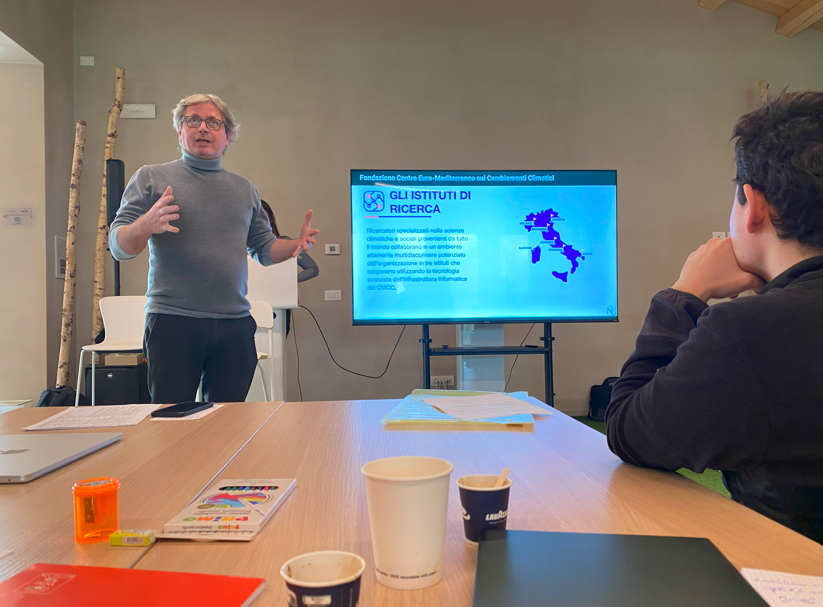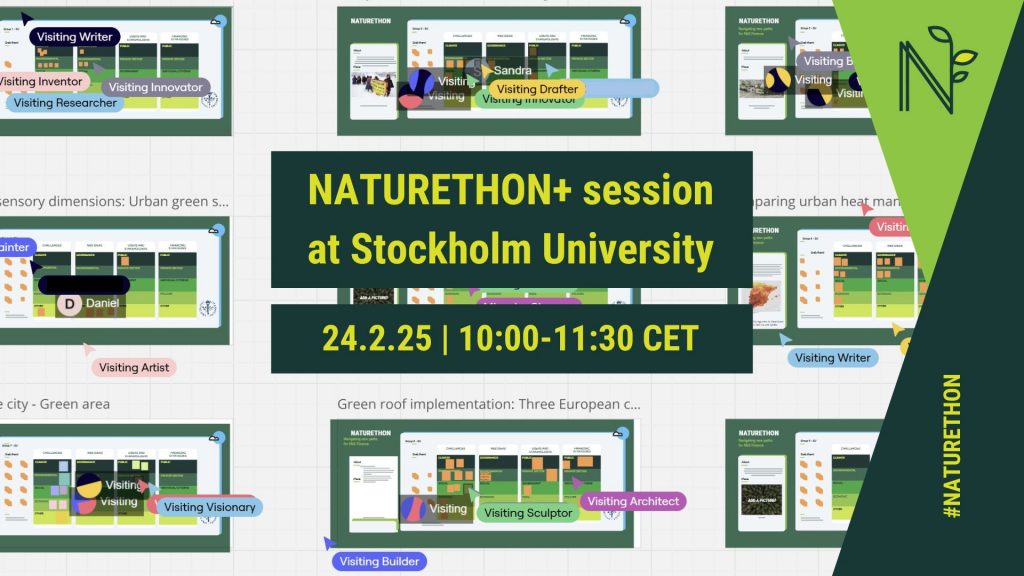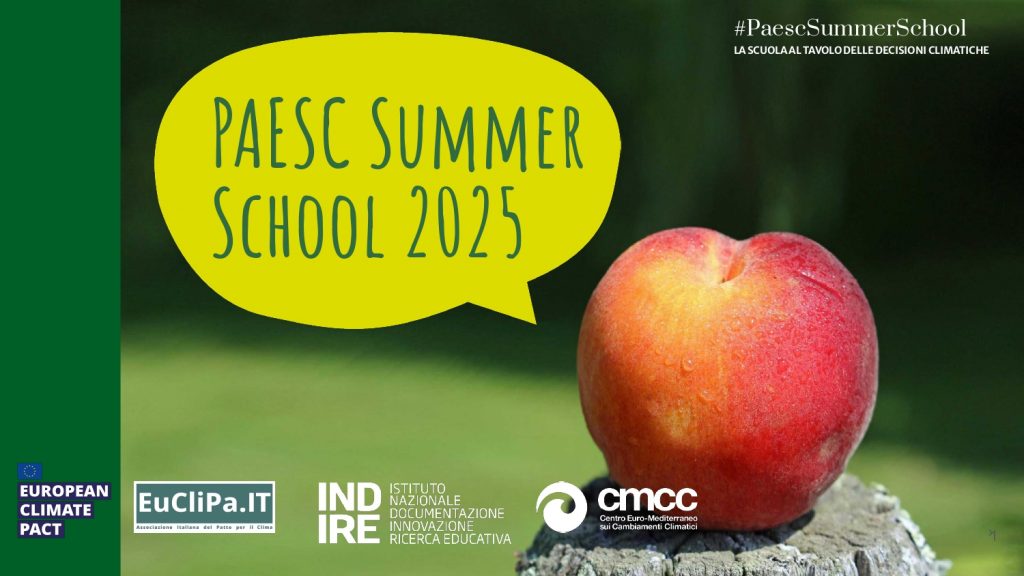Stay connected
Learn about the latest research and results from the project.
Subscribe to the NATURANCE Newsletter!
Learn about the latest research and results from the project.
Subscribe to the NATURANCE Newsletter!
An additional series of in-person and online events were scheduled after the end of the first round to foster engagement. Along with the outcomes of the Naturethon sessions in the second webstival of the project, these meetings fed a second batch of submissions
The first of the Naturethon+ events was the co-organization of the “Hack for Climate Justice” hackathon, held on December 7, 2024, in Padua, Italy. As part of the Changemakers in Action project, the hackathon focused on analyzing the Sustainable Energy and Climate Action Plans (SECAPs) of the participants’ municipalities. The program featured a welcome session, group activities, and a final evaluation of the proposals. Over the course of five hours, the event fostered collaboration and innovation while raising awareness of the importance of climate justice and sustainability.
During the hackathon, 28 young participants (aged 20–35) developed innovative Nature-based Solutions (NbS) for climate adaptation, later presented to a jury. The group focusing on Piazzola sul Brenta received a special mention from NATURANCE coordinator Jaroslav Mysiak. Their proposals tackled drought and water management through measures such as solar-integrated water basins, new forest and wetland areas, and phytoremediation to improve water quality. The project also linked to regional funding, the Brenta River Contract, and envisioned a renewable energy community and biodiversity oasis.

The second project’s Webstival, held on 11–13 February 2025, hosted two Naturethon sessions.
In the first session, following the presentations of the 2024 Champions, participants were divided into three breakout rooms for a live laboratory. Using three of the awarded proposals as case studies, 62 participants engaged in discussions on challenges, stakeholders, alternative measures, and financing strategies, collaboratively filling in digital boards. The session concluded with group representatives sharing their findings in the plenary room.
The second session, part of the Knowledge Marketplace, featured experts selected through the Webstival’s call for content. They showcased four ongoing projects focused on stakeholder engagement in the deployment of NbS. This session fostered cross-sector collaboration and networking among about 60 attendees. on stakeholder engagement in the deployment of NbS. This session fostered cross-sector collaboration and networking among about 60 attendees.
On 24 February 2025, a blended event brought together 29 MSc students for a dedicated session of the Environmental Management in Planning course, led by Jerker Jarsjö, Professor of Hydrology at Stockholm University, Sweden, and member of the Naturance project.
Following an introduction on the role of citizen engagement in deploying Nature-based Solutions, the Naturethon team guided students through a hands-on environmental planning exercise. Working in eight groups, participants used a digital collaboration platform to design projects on diverse issues such as biodiversity, water, climate, NbS, and energy planning, across different spatial and temporal scales.
At the end of the course, students submitted final papers—both for grading and as contributions to the Naturethon initiative.

On 20 June 2025, the consortium partners brought Naturethon to the Master’s program in Science and Health Communication at Vita-Salute San Raffaele University in Milan, Italy. Fourteen students, mostly from healthcare and biotechnology backgrounds, explored the role of citizen engagement in designing Nature-based Solutions.
Guided by experts, they used the Miro platform to co-create ideas for a hypothetical urban setting, addressing biodiversity loss and climate-related challenges. As the fourth event in the Naturethon+ series, the session fostered a lively exchange between research and academia, inspiring new ways to connect science with society.
Schools play a crucial role in the ecological transition, yet they are often excluded from local decision-making. On 25 August 2025, the Naturethon team chaired a session of the PAESC Summer School, a joint initiative by INDIRE (the Italian National Institute for Documentation, Innovation, and Educational Research) and EuCliPa.IT (Italian coordination of European Climate Pact Ambassadors). The program engaged 25 secondary school teachers, providing them with practical tools to actively contribute to the ecological transition of their territories.
The training focused on the pivotal role of educators in engaging the next generation to address climate challenges. Central to the experience were the Sustainable Energy and Climate Action Plans (SECAP/PAESC) which over half of Italian municipalities are required to develop as part of the European Union’s Covenant of Mayors.
Through this innovative educational path, the PAESC Summer School promoted collaboration between schools and local administrations, linking teaching, civic participation, and climate policies, and offering teachers concrete strategies to involve students in sustainability initiatives.
